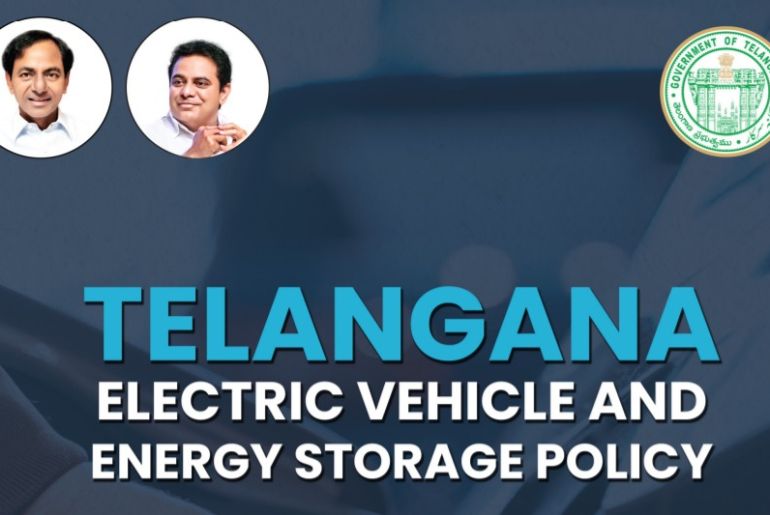The goal of the Telangana Electric Vehicle and Energy Storage Policy 2020–2030 is to make the state one of India’s premier hubs for energy storage systems (ESS) and electric cars (EVs). Telangana’s policy aims to promote universal EV adoption, local manufacturing, and infrastructural development with an emphasis on sustainability and innovation. The state has made great strides in renewable energy and wants to continue lowering carbon emissions while providing farmers and industry with reliable electricity.
Telangana intends to use its advantages in a number of industries, including electronics, IT, aerospace, and automotive, to realize its objective. To encourage the adoption of EVs on two-, three-, four-, and bus wheels, the policy offers extensive fiscal and non-fiscal incentives. For example, the first group of EVs bought in the state are exempt from road tax and registration expenses. With incentives to lower their cost, special attention is given to EVs for shared mobility and public transportation.
Infrastructure for charging is a crucial component of the policy. Through public-private partnerships, the state intends to establish fast-charging stations in Hyderabad and other places. Public locations such as malls, metro stations, and airports will have charging stations. Additionally, efforts will be made to provide these stations with sustainable energy. To make EVs more accessible for everyday and long-distance use, the government will promote the installation of EV charging stations on residential townships and highways.
The policy is in line with India’s overarching objectives under the National Mission on Transformative Mobility and Energy Storage and the FAME II initiative. By 2030, Telangana hopes to generate over 120,000 employment and $4 billion in investments by offering incentives and a strong environment. The state has also established a steering group to supervise the policy’s execution and review, guaranteeing that its goals are fulfilled within the allotted period.


